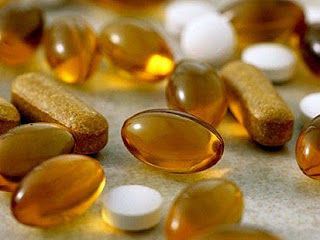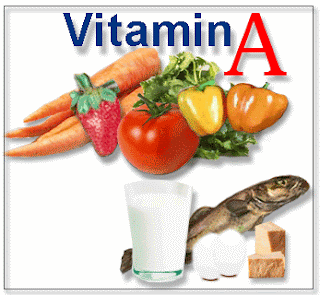
In 1911, Dr Casimir Funk proposed the word “ Vitamin” which means a vital amine to designate a new food substance for curing beri – beri. Many other terms were proposed but at last the term “vitamin” was finalized and coined.
Potent organic compounds found in small concentrations in food are known as Vitamins. They are considered to be electric sparks to run the human motors. Apart from a few exceptions, they cannot be produced by our body and their absence or improper absorption can lead to specific deficiency disease. We must obtain them from foods or dietary supplements.
Several kinds of vitamins are there. They differ from each other in physiological function, in chemical arrangement and in food allocation. They are classified in two groups, fat soluble and water soluble. Fat soluble category consists of Vitamins D, E and K. They are not easily lost while cooking and they can be stored in the body to some extent, mostly in the liver. Water soluble consists of Vitamin B Complex and C, they gets easily dissolved in water. A portion of these vitamins can be destroyed while cooking. They cannot be stored in body and hence, should be taken daily. Excessive amount, however, is treated as waste.
Vitamins are believed to be of immense help in rapid recovery and in fighting diseases. Latest researches show that many vitamins if taken in large doses can have an amazing healing effect in a wide range of common illness. Over drug therapy, Vitamin therapy has a distinct advantage. Drugs are toxic and have undesirable side effects but vitamins are safe and non – toxic.
Benefits of vitamins:
Vitamin A
Vitamin A is known as anti – ophthalmic and is vital for growth and energy. It averts respiratory and other infections, eye diseases, premature ageing, and senility. It nourishes the skin and hair, increases life expectancy and extends youthfulness. It works mainly on eyes, lungs, stomach and intestines.
The main sources from which this vitamin can be obtained are fish liver oil, liver, whole milk, curds, pure ghee, and butter, cheese, cream and egg yolk, green leafy and certain dry fruits and yellow root vegetables.
A long deficiency of vitamin A may lead to the inflammation of the eyes, frequent colds, poor vision, night blindness, infections, lack of appetite, defects in teeth and gums and skin disorders.
B Complex Vitamins
Large varieties of vitamins comprise the B group. The important among them are B1 or thiamine,B2 or riboflavin,B3 or niacin acid, B 6 or pyridoxine,B9 or folic acid,B12 and B5 or pantothenic acid.
Thiamine
It is also known as anti – beriberi, anti – neurotic and anti – ageing vitamin. In the normal functioning of the nervous system, the regulation of carbohydrates and good digestion, thiamine plays a very vital role. It protects heart muscle, stimulates brain action and helps to avoid constipation.
The main sources from which this vitamin can be derived are wheat germ, yeast, the outer layer of whole grains, cereals, pulses, nuts, peas, legumes and dark green leafy vegetables, milk, egg, banana and apple.
The deficiency of this vitamin can cause chronic constipation and serious impairment of the digestive system, loss of weight, diabetes, mental depression, nervous exhaustion and heart weakness.
Riboflavin
This vitamin is also known as vitamin G apart from vitamin B2 or riboflavin. This vitamin is essential for growth and is healthy for eyes, skin, nails and hair. It helps to get rid of sore mouth, lips and tongue.
The main sources from which this vitamin can be derived are green leafy vegetables, milk, cheese, wheat germ, egg, almonds, sunflower, seeds, citrus fruits and tomato.
The deficiency of this vitamin can cause a burning sensation in the legs, lips and tongue, oily skin, premature wrinkles and eczema.
Niacin
For the proper circulation, healthy functioning of the nervous system and proper protein and carbohydrate metabolism this vitamin is necessary. It is also very important for the synthesis of sex hormones, cortisone, thyroxine and insulin
 The main sources from which this vitamin can be derived are liver, fish, poultry, peanut, whole wheat, green leafy vegetables, dates, figs, prunes and tomato.
The main sources from which this vitamin can be derived are liver, fish, poultry, peanut, whole wheat, green leafy vegetables, dates, figs, prunes and tomato.The deficiency of this vitamin can cause skin eruptions, frequent stools, depression, insomnia, headaches and anemia.
Pyridoxine
To absorb fats and proteins, to prevent nervous and skin disorders this vitamin is essential. The main sources from which this vitamin can be derived are yeast, wheat, pulses, cereals, banana, walnut, milk, liver, egg, meat and fresh vegetables
The deficiency of this vitamin can cause dermatitis, conjunctivitis, anemia, depression, skin disorders, migraine and heart disease.
Folic acid
For the red blood cell formation, folic acid is vital. It is vital for the growth and division of all body cells for healing process. The main sources from which this vitamin can be derived are spinach, lettuce, yeast, mushrooms, peanuts and liver.
The deficiency of this vitamin can cause certain types of anemia, skin disorders, and hair loss, impaired circulation, fatigue and depression.
Pantothenic Acid
This vitamin helps in cell building and maintaining normal growth and development of the central nervous system. It increases the production of cortisone and other adrenal hormones and stimulates the adrenal glands. It is necessary for conversion of fat and sugar to energy.
The main sources from which this vitamin can be derived are whole grain bread and cereals, green vegetables, peas, beans, peanuts and egg yolk.
The deficiency of this vitamin can cause chronic fatigue, hypoglycemia, graying and hair loss, depression, stomach disorders.
Vitamin B 12
Cobalamin or vitamin B12 is also referred as ‘red vitamin’. Only this vitamin contains vital mineral elements. It is required for proper functioning of the central nervous system, production and regeneration of red blood cells and proper usage of fat, carbohydrates and protein for bodybuilding It strengthens concentration, memory and balance.
The main sources from which this vitamin can be derived are kidney, liver, meat, milk, eggs, bananas, and peanuts.
The deficiency of this vitamin can cause anemia, poor appetite and loss of energy and mental disorders.
Vitamin C
This vitamin is vital for normal growth and maintenance of practically all the body tissues, especially those of joints, bones, teeth and gums. It acts as a harmless antibiotic. It serves as a protection against all forms of stress and harmful effects of toxic chemicals. It prevents and cures the common cold. It also decreases blood cholesterol.
The main sources from which this vitamin can be derived are citrus fruits, berries, green and leafy vegetables, tomatoes, potatoes, sprouted Bengal and green grams.
The deficiency of this vitamin can cause scurvy marked by weakness, anemia, bleeding gums and painful and swollen parts, slow healing of sores and wounds, premature aging and lowered resistance to all infections.
Vitamin D:
For proper bone and teeth formation, Vitamin D is very necessary. It is also required for the healthy functioning of the thyroid gland. It assists in the absorption of calcium, phosphorous and other minerals from the digestive tract.
The main sources from which this vitamin can be derived are sun rays, fish, milk, eggs, butter and sprouted seeds.
The deficiency of this vitamin can cause gross deformation of bones and severe tooth decay.
Vitamin E
This vitamin is essential for normal reproductive functions, fertility and physical vigor. It prevents unsaturated fatty acids, sex hormones and fat soluble vitamins from being destroyed in the body by oxygen. It improves blood circulation
The main sources from which this vitamin can be derived are wheat or cereal germs, whole grain products, green leafy vegetables, milk, eggs, all whole, raw or sprouted seeds and nuts.
The deficiency of this vitamin can cause sterility in men, repeated abortions in women, degenerative developments in the coronary system, strokes and heart disease.
Vitamin K
It is essential for the proper clotting of blood, prevention of bleeding and normal liver functions. It helps in reducing excessive menstrual flow.
The main sources from which this vitamin can be derived are egg yolk, cow’s milk, yogurt, alfalfa, green leafy vegetables, spinach, cauliflower, cabbage and tomato.
The deficiency of this vitamin can cause insufficient bile salts in the intestines, colitis, lowered vitality and premature aging.




0 comments:
Post a Comment